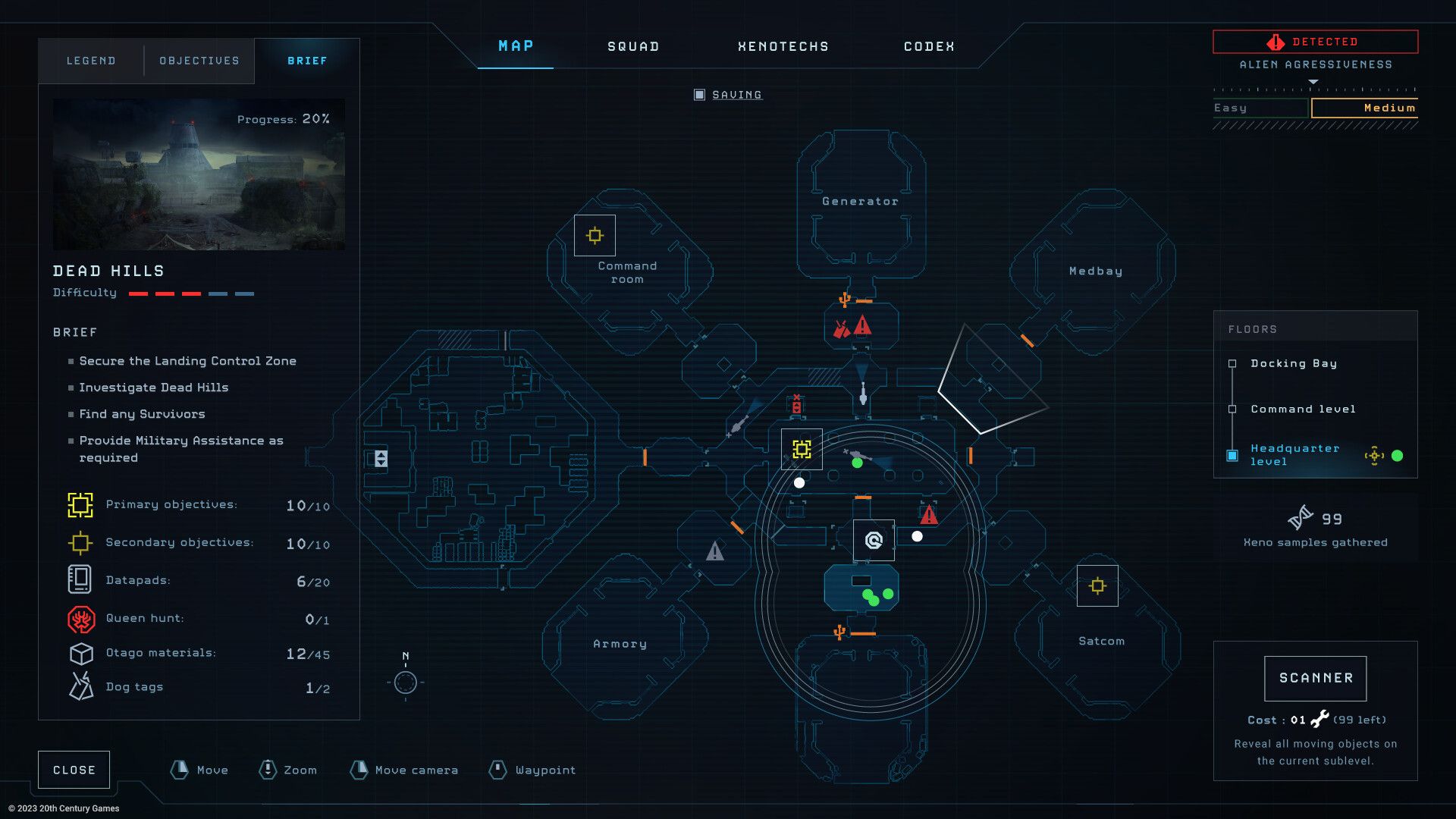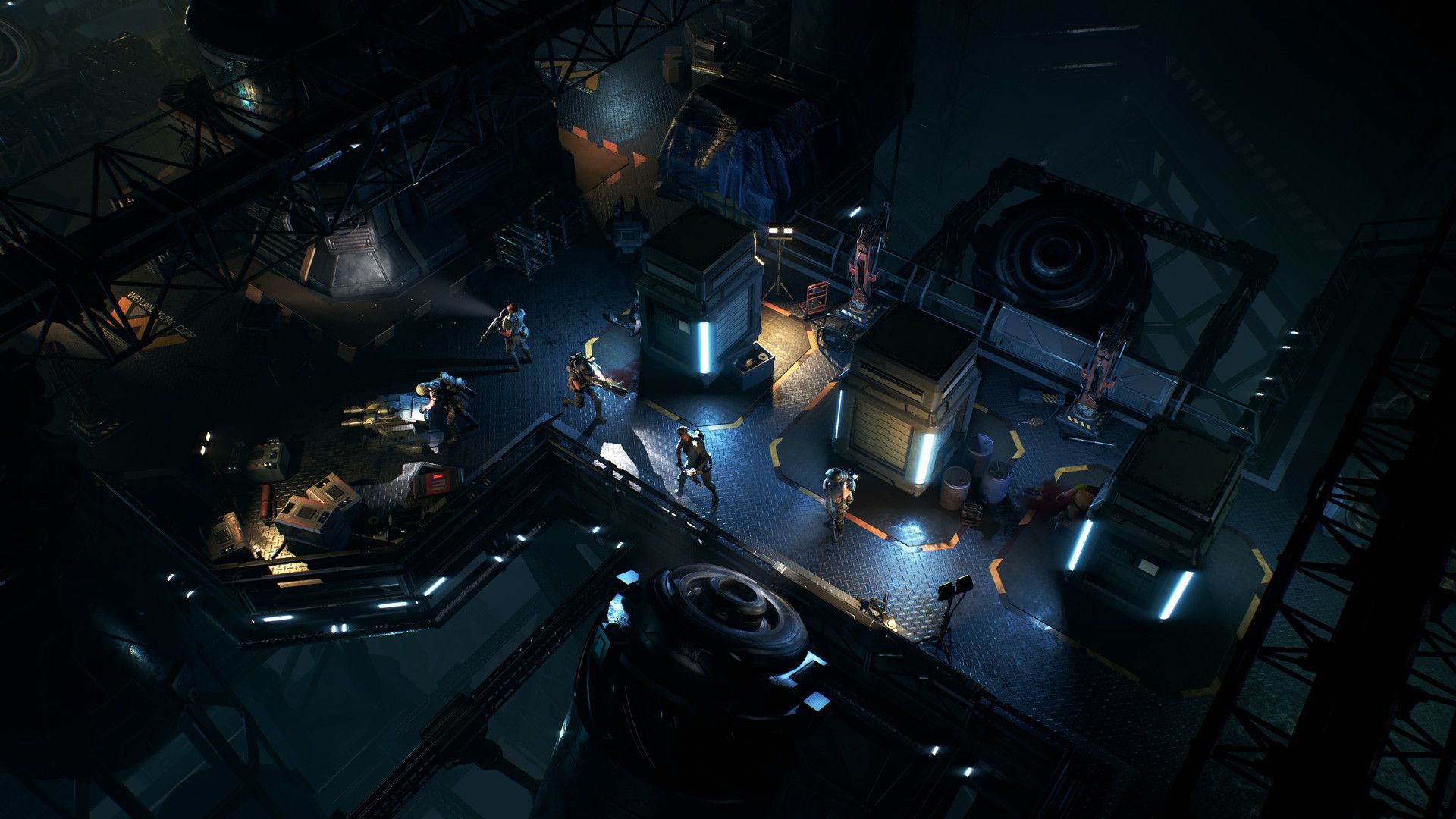You would be forgiven for thinking that Aliens: Dark Descent is yet another game about the Colonial Marines that missed the point of James Cameron's action-horror classic and suggested the film's squad of vainglorious thugs were badasses all along. After all, it doesn’t take long for the game to hand players a simple bag of tricks that will suffice for most, if not all, of the opening missions. And these Xenomorphs don't seem much like a threat at first. "RIP to Gorman and Vasquez,” you might find yourself thinking as your squad crouches behind a wall of sentry guns mulching waves of aliens, “but I'm different.”
However, Aliens: Dark Descent, a top-down tactics game from Tindalos Interactive, has more in common with its inspiration than it first appears. It’s worth remembering that in Aliens, after their disastrous first battle, the remaining Colonial Marines had to come to grips with their new adversary as they dug in behind choke points. Time is not on their side, ammunition is finite, and unlike the aliens, they are hiding frailty behind thin plates of body armor, walls of exhaustible high-tech firepower, and make-believe machismo. These dynamics unfold across the entire Dark Descent campaign. Once battles begin to turn against the Marines, they turn fast.

Thankfully, at any point in a Dark Descent mission, you can sneak or fight your way back to your transport and return to HQ, where you can send troops to the hospital, research new gear, and level up your troops. The rest of the mission will still be there on the next day of the campaign, where you can send in a fresh squad to pick up where the previous one left off. There are some situations where withdrawing is patently the correct move, like when one of your four or five-member squad is incapacitated and needs to be fireman-carried across the map by one of their comrades.
But the real reason retreating might be advisable is that Dark Descent inflicts its deadliest damage via its stress mechanic. With every moment spent in combat with the aliens, or being hunted by them once stealth is broken, the members of the squad suffer more stress. Once they take 100 stress, a negative modifier inflicts a weakness. The most benign of them, “Shaking/Scared,” means that your soldier is immediately less accurate with their weapon. That sounds bad, but you might get “Berserk” instead, which applies a far worse aim penalty and causes the soldier to spend ammo at twice the usual rate.
Once that trait is applied, their stress resets to zero and the counter ticks up to 100 again, at which point another negative modifier further reduces their effectiveness, and so on. With every three levels of stress, a soldier gets a “trauma” that inflicts permanent penalties on them until they are given a break from combat for a few days and sent to the Marines' psych ward and counseling center for a few days.
The UI will tell you that your squad is taking these penalties but you might not notice how badly everyone is fighting because it will look and sound very much the same. The stuttering whir of the pulse riles won’t seem any different, but suddenly the math is against you. The aliens will seem like they are getting tougher because they are charging into gunfire that doesn’t hit nearly as often. They'll get close enough to inflict damage that causes even more stress, and as they attack, what was once an impenetrable front will start to crumble.

So even when things aren’t going that badly, a physically undamaged marine squad might still be rendered combat ineffective well before anybody gets close to being eviscerated by an alien. Once they withdraw — assuming they can make their way to the extraction point — it might take several days’ worth of physical and behavioral medicine to restore them to full strength.
Unfortunately, you don’t have that kind of time in Dark Descent because the entire campaign escalates in difficulty with each day it drags on. Every week you’re on the alien-haunted planet of Lethe, the “infestation level” increases, which means the number of aliens you encounter gets higher, the types get worse, and the difficulty increases much faster each time your squad is detected. Early in the game, during that first week of missions, you might be able to engage in several shootouts with aliens before they begin to swarm around the map looking for you. Much later, a couple small skirmishes will be enough to bring the hordes down on your head, overwhelming your squad with stress in just minutes even if they manage to hold the line. Even worse, the sheer number of aliens will make it almost impossible to hide long enough for the aliens to give up their hunt and let your troops have a breather.
It’s this dynamic that makes Dark Descent a great, insightful adaptation of Aliens, similar to how Alien: Isolation completely locked in on what was so compelling about Alien. If the Xenomorphs are the perfect organism, a seamless blending of structure, emotionless survival, and predatory instincts, the Marines represent an attempt to achieve that perfection via technology and training. For a good portion of the campaign, it might seem like they are more than a match for the aliens. However, unlike their foe, the Marines are structurally weak, unable to bear the loads of the mission, and have technology that is only powerful as long as the ammo supplies hold out.
This content is for registered subscribers only
Register now to access "Fighting Fear Itself in Aliens: Dark Descent".
Sign up now Already have an account? Sign in